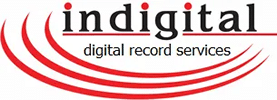Did you know that businesses in the U.S. spend $8 billion a year on managing paper? That’s a lot of money collectively, and unfortunately, the individual costs are pretty high too. The average cost to file a document is $20, and if the document is misplaced, the search process costs $120. Lost documents that need to be replaced cost the most money at $220.
But even considering these costs, many companies hesitate to go paperless. They may be intimidated by the sheer process involved in the switch, or they might think that a paperless route isn’t for them. Nonetheless, no matter the reason for the hesitation, companies that fall into one of these five industries should seriously consider going digital.
1. Education
With the increase of technology available today, companies, facilities, and organizations that deal with education have more opportunities and reasons than ever to switch to a paperless system.
Course work can be assigned, completed, turned in, and graded all online. And one big benefit for students and teachers is that digital assignments are often graded instantaneously, which saves instructors a lot of time.
In addition, if all the assignments and resources for a course are online, that eliminates the chance of students and teachers losing important papers, and students will never forget to bring their homework to class.
2. Finance
Money is important in our society, so it invites a lot of problems, from security risks to legal issues. Luckily, a paperless system of record-keeping provides financial businesses and their customers with a more secure and accurate system of organizing information.
This organization is especially important because one missing financial document could be extremely difficult to replace years down the road, namely because employees and customers won’t likely remember all the numbers and relevant information involved.
A paperless system will also help a financial institution keep track of all types of transactions, changes in customer status, and tax information they need to know to provide service.
3. Law
The law industry prints the most pages a day by far, which is why switching to digital can be a big project for a law firm that wants to go paperless. However, by making the switch, this type of company also has the most to gain because all the costs of printing and managing the various documents will significantly reduce if not disappear.
In addition, physical documents have to be stored somewhere, which means a bigger building or a storage unit — and some paperwork has to be saved indefinitely after the case ends. When these documents are changed to a digital form, this physical space is no longer needed, which allows for downsizing.
4. Government
Government facilities are responsible for a lot of people and places. So effective organization of all the forms and documents is a must, and a paperless system will help with this. Instead of having to track down a file, employees can quickly access the information they need right away.
Naturally, this process will help with productivity. Many processes that involve the government also require involvement or permission from a lot of people, and an instantaneous, digital form of record-keeping will put these task on the fast track.
5. Health Care
The medical industry is another place where efficient, accurate record keeping is a top priority. A lost document in this industry actually can create a life-threatening situation.
One big benefit to a paperless organization system is that both medical employees and patients will have instant, easy access to the information they need. And patients’ medical records can be updated immediately, which reduces the chance of a dangerous miscommunication.
If your company is ready to make the switch to a digital form of record-keeping, contact Indigital. We’ll walk you through the process, and help your company go paperless.

